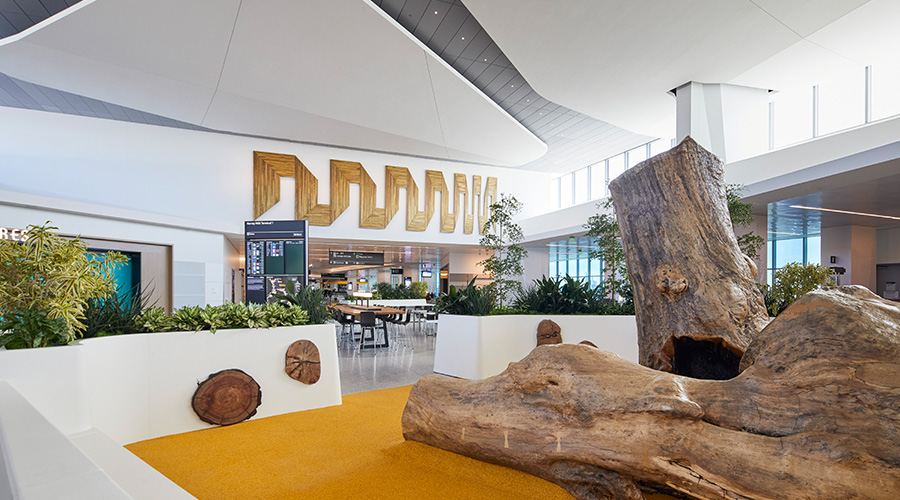
Keeping Operations Going During Times of Crisis
James Libruk of the U.S. Department of State discusses facility operations during disasters and unrest. February 29, 2024
By Jeff Wardon, Jr., Assistant Editor
When the unthinkable happens, facility managers must be prepared for disaster and unrest. This means keeping their facilities running during these times of uncertainty. To expand on this, James Libruk, deputy director of operations for South America and Asia for the U.S. Department of State, will be presenting the session “Facility Management Operations During Crisis” at NFMT 2024 in Baltimore from March 12 to 14.
FacilitiesNet: What are the specific operational vulnerabilities for facilities during a natural disaster?
James Libruk: We try to think if our equipment will operate in that environment or not. For example, in a fire, we are trying to communicate to the outside world, so we must keep our communication equipment cooled. So those are some of the top priorities.
We also do a lot of drills. We have wardens who train our local staff because it is a team effort to address these natural disaster-related issues. That can include how to get a hold of people, determining where they live and getting an alternative means of communication. So, if the cell phone networks are not working, we have radios. Other than that, we have a “family tree” where wardens will gather up groups of people so that we can get accountability for our staff and that is basically a holistic view.
However, we also work with our counterparts like the fire department and police department to support us in natural disasters. What response time would be even for example, if an earthquake happens during rush hour, what are their predicted times to react to the embassy? Additionally, how long would it take for us to get people to a hospital? These are some of the things that we look at.
FN: What operational vulnerabilities are there for facilities during times of civil unrest?
Libruk: What our experience is, worldwide, typically power is the first to experience issues during civil unrest from blackouts. We must get people to an embassy or power plant so they can work on the equipment to provide the city with power. So, power is a key concern.
The other issues that we have for civil unrest are accountability and how we make sure our staff is safe. That takes a lot longer because typically transportation is shut down and the network communication networks are typically impacted at most locations that we have experienced in our past.
To mitigate those vulnerabilities, we have set up processes and procedures to ensure that we are as safe as possible. We train our staff to shelter in place or to avoid crowds if it is civil unrest like if there are mass protests going throughout the city then do not go to those protests. Stay at home and shelter in place. Make sure you have that supply of five days of food and water. Make sure to have alternate means of egress to get out or to get to an embassy in case of war or the like. We need to get people safely evacuated to a secure location for accountability and reporting purposes.
FN: What contingency plans can facility managers use in times of crisis?
Libruk: So, the best contingency planning occurs actually through basically ensuring that your building is running to design and that is a long approach of maintaining your building. Anything that can go wrong during a crisis typically will. So, ensuring that you have reliable systems like power, cooling, heating and water and food at your facilities is critical.
That is just something that you cannot plan in a week. That takes years of planning to ensure that you have sustainable operations, and I cannot stress that enough. Also, have multiple people trained so that during a disaster scenario they know what to do. If we do not talk about it, plan for it and practice.
We have seen cases where operations were well planned out, and we also have had locations where they were not well planned out. You could see a major difference in the success of how that location was able to handle that disaster or civil unrest. So again, getting your staff up to speed and ensuring proper operations and maintenance to those systems is critical for long-term success.
FN: Why is it important to build and maintain a contact list of building systems subject matter experts?
Libruk: We cannot be experts in everything, and we need to rely on our schemes to help us make good decisions as facility managers to maintain these critical systems. If you do not have good contacts to rely on and discuss to come up with what to do in certain situations, you are not going to be successful. We are a people business, and we need to ensure that we have the right people advising us to make good decisions. Having that network of good personnel that know or specialize in one trade is critical.
To learn more about keeping facility operations going during a crisis, be sure to check out Libruk’s session at NFMT 2024 in Baltimore. Register for NFMT here.
Jeff Wardon, Jr. is the assistant editor for the facilities market.
Next
Read next on FacilitiesNet












